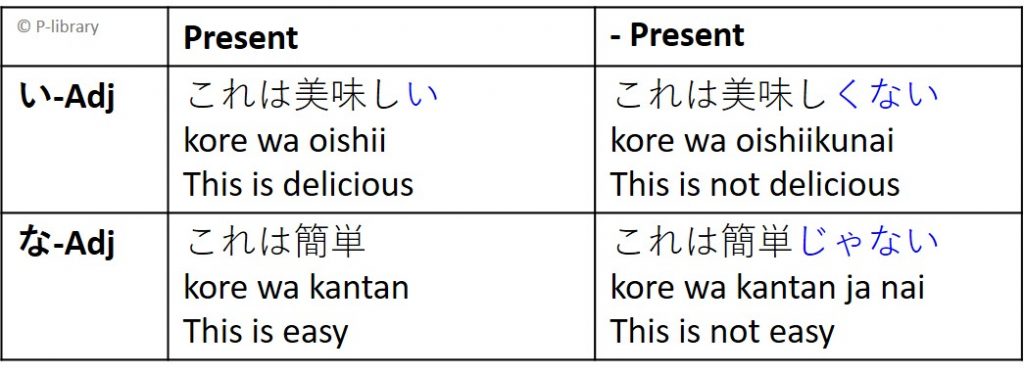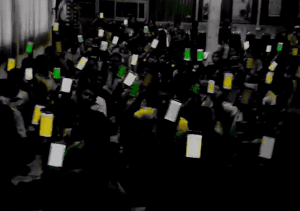A sentence describing a noun
Examples
** please refer to this for transformation of adjectives.
** Time, such as 昨日 (kinou/yesterday) can be used as a subject in a sentence.
** E.g., 昨日 彼は楽しかった (kinou wa tanoshikatta) = He was fun yesterday ** in this example, 彼 (kare) is the subject and は is not needed for 昨日.
Particle: が
N は N2 が Adj
は indicates the subject, が indicates the target of the adjective describes
Example:
- 彼は背が高い。 (kare wa se ga takai) = He is tall ** 背 = back
- 昨日、私は調子が悪かった。 (kinou watashi wa choushi ga warui) = I was not in a good condition yesterday ** 調子 = condition, 調子悪い is also OK
- 私はこれが好きじゃなかった。 (watashi wa kore ga suki ja nakatta) = I did not like this (in this past)
Connecting an adjective to a noun
The above table shows how to transform adjectives, not how to change the type of sentence.
Examples
Past-form adjective
- 彼女は私が好きだった人です。 (kanojo wa watashi ga suki datta hito) = She is someone I liked.
- 好きだった人に会います。 (suki datta hito ni aimasu) = I will meet someone I liked.
Past tense
- 彼はいい人だった。 (kare ha ii hito datta) = He used to be a good person (He is a bad person now).
- 好きな人に会いました。 (suki na hito ni aimashita) = I met someone I like.
- いい経験でした。 (ii keiken deshita) = It was a good experience.
Adjective from other languages & slang
They are な-adj, but omitting of な is also common. For examples, ハンサム女子 (hansamu josei/handsome girl), イケメン顔 (ikemen gao/good-looking face).
の-Adj
の-Adj is actually using the first noun to describe the second noun using の particle. Sometime, it is considered as the third type of adjectives.
E.g., 理想の国(risou no kuni)= ideal country, 伝説の剣(densetsu no ken)= legendary weapon.
Learn Adjectives
https://www.youtube.com/playlist?list=PLB3Mq8bM3diGTsTlV2LrCtxF12bHIwgA8








